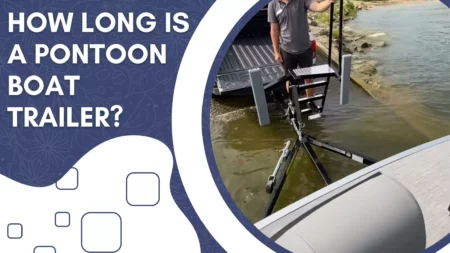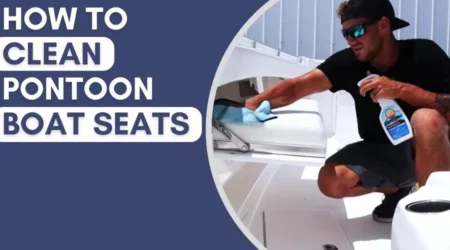Looking for a fun and exciting way to get out on the water? Look no further than Duffy Boats and Pontoon Boats!
Whether you are a beginner or an experienced boater, these two types of boats offer a unique and enjoyable experience.
But which one is right for you? In this ultimate comparison guide,
I will compare Duffy Boats vs Pontoon Boats, outlining the differences and similarities between the two so that you can make the best decision for your boating needs.
I will analyze the merits & demerits of each, as well as key features to consider so that you can make an informed judgment
So strap in and explore the differences between Duffy Boats and Pontoon Boats!
Overview of Duffy Boats and Pontoon boat
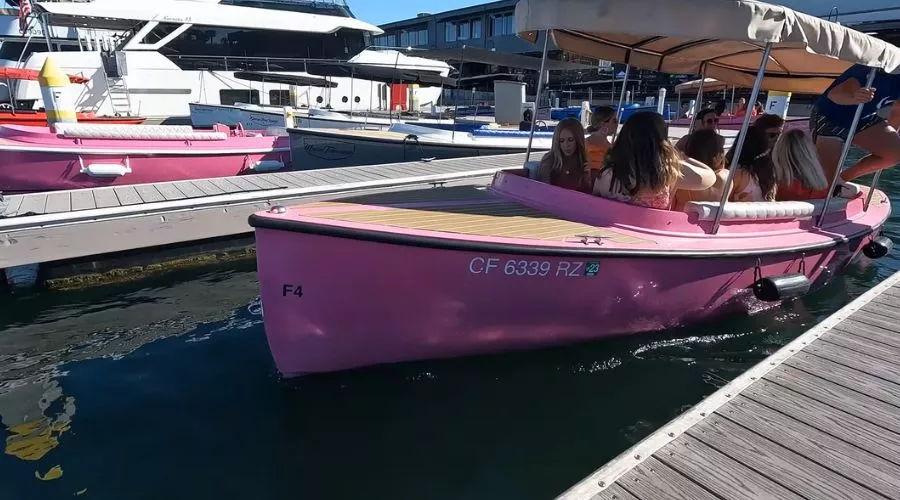
A Duffy Boat is a unique electric boat that has been around since 1970.
It’s an enclosed vessel with a flat bottom, making it very stable and easy to maneuver in tight spaces.
The Duffy Boat is powered by a quiet electric motor, making it great for quiet lakes or marinas where noise pollution is an issue.
It’s also great for people who don’t want to deal with the hassle and mess of gas-powered motors.
A Pontoon Boat, on the other hand, is a larger vessel that is typically powered by a gas or diesel engine.
Pontoon boats are great for larger groups since they can comfortably accommodate up to 10 people.
They’re also great for fishing since they offer plenty of deck space and can be customized with fishing rod holders and other accessories.
Merits & Demerits of Duffy boat
- Smaller
- Great for families or small groups.
- Easy to maneuver the boat.
- Affordable
- Smaller boats may not be ideal for larger groups
- Not be big enough for fishing or other water sports
Merits & Demerits of Pontoon Boats
- Large boat that can accommodate many people.
- Can handle larger water bodies, such as oceans.
- Great for water sports, such as fishing and water skiing.
- Can be customized to fit different needs.
- Costlier boat
- It may not be ideal for families with small children, as the boat is large and challenging to navigate
- Does not have the flexibility of a smaller boat to navigate different water bodies.
Differences Between Duffy Boats and Pontoon Boats
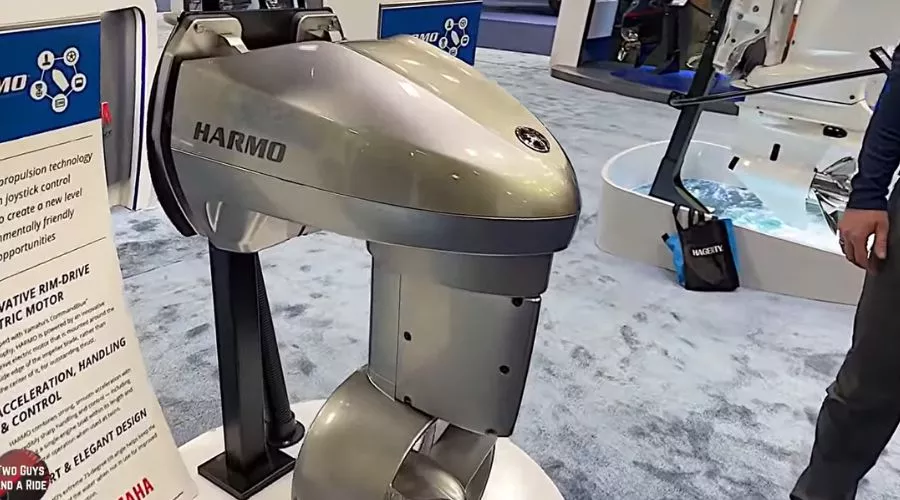
One of the key differences between Duffy Boats and Pontoon Boats is their engine type.
Duffy boats use a smaller outboard engine, mounted on the back of the ship.
This allows the engine to sit low in the water, which is essential when navigating slow-moving or shallow water bodies.
Pontoon boats use a larger inboard engine, which is mounted inside the boat.
This allows the engine to sit higher in the water, which is important for navigating larger bodies of water, such as oceans.
The inboard engine also has a lower risk of flooding when in shallow water, which is important for families with children.
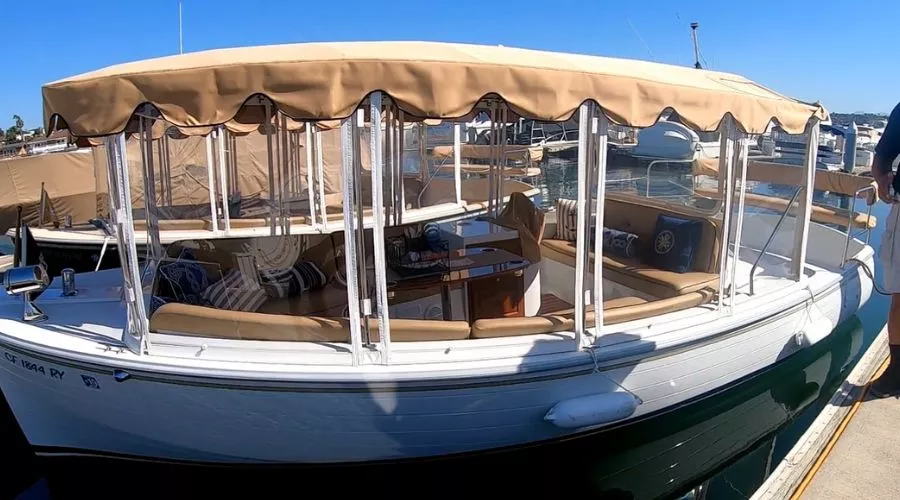
Duffy boats are smaller boats that can carry 2-6 passengers, while Pontoon boats are larger boats that can carry up to 20 passengers.
The smaller size of the Duffy boats makes them great for families with young children or for groups of friends or couples looking to enjoy boating together.
The larger size of the Pontoon boats make them great for larger groups of people, such as families with young children or large groups of friends.
Both types of boats can be customized to fit different needs, such as with extra seating, so keep this in mind when deciding which boat is best for you.
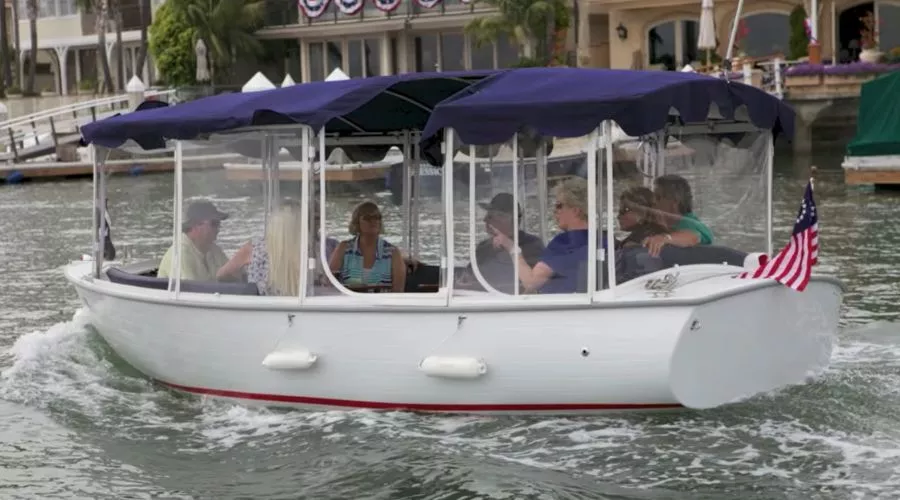
Duffy boats are meant for slow-moving and shallow water bodies, as they sit low in the water, whereas the Pontoon boats are built for larger water bodies and sit higher in the water.
The Duffy boats are often only found on smaller lakes, rivers, and creeks, whereas the Pontoon boats are often found on larger lakes, rivers, and oceans.
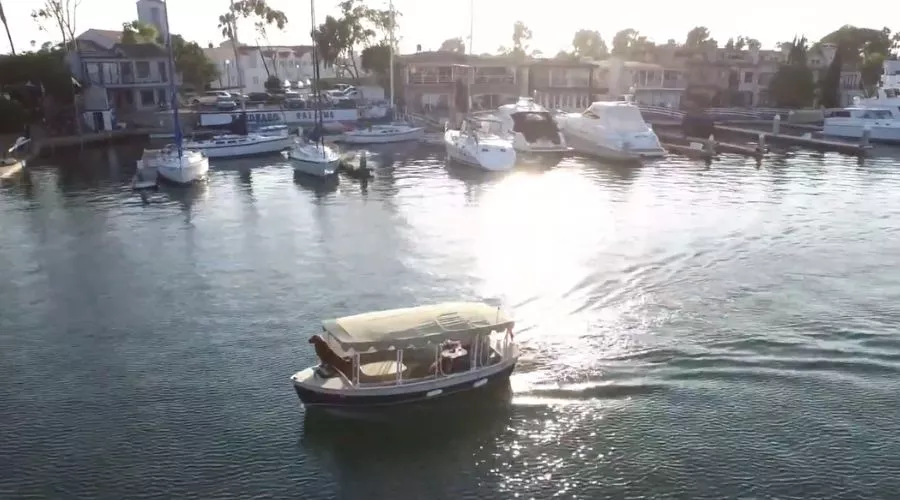
Duffy boats can travel at higher speeds due to their smaller engines, whereas Pontoon boats can travel at lower speeds due to their larger engines.
This is important to remember, especially if you are boating with young children.
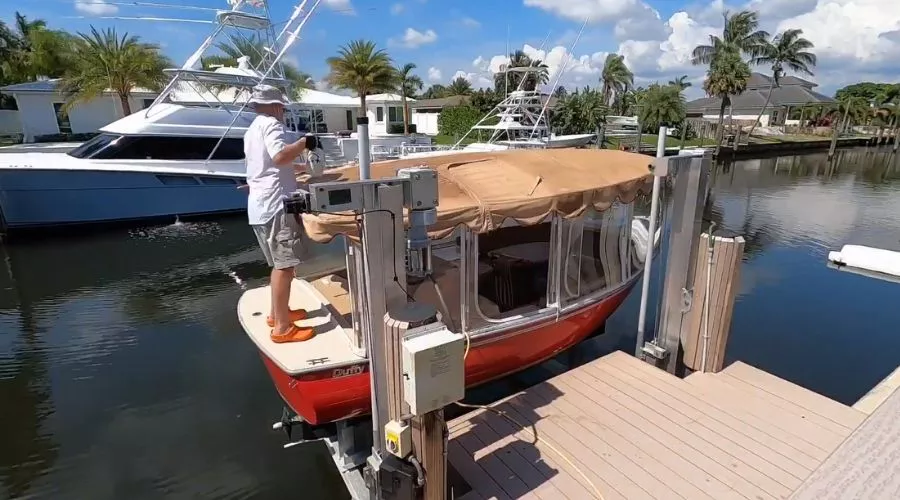
Duffy boats require less maintenance and are easier to repair, as they have smaller engines an sit lower in the water, making them ideal for slow-moving and shallow water bodies.
Pontoon boats require more maintenance, as they have larger engines and are built for larger water bodies. This can be important to keep in mind, especially for first-time boaters.
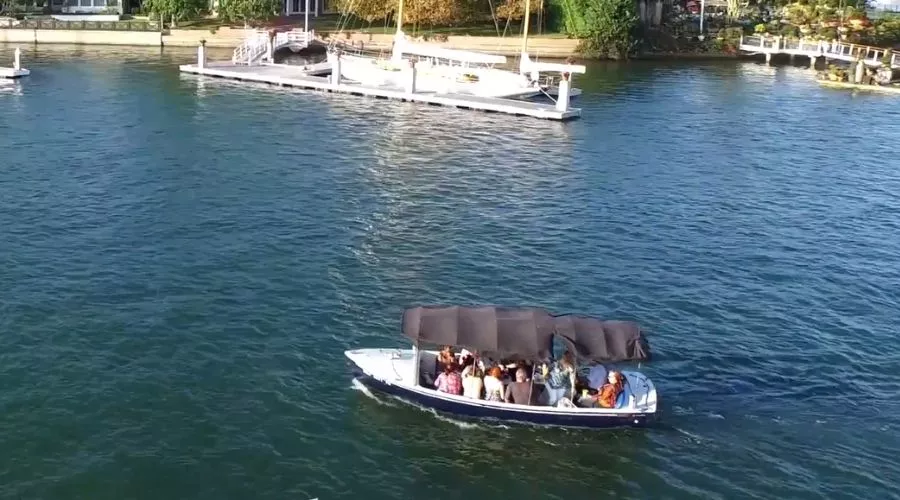
Duffy boats can only carry 2-6 people, whereas Pontoon boats can carry up to 20 people.
The smaller capacity of the Duffy boats makes them great for smaller families or groups of friends, but they may not be ideal for larger groups.
The larger capacity of the Pontoon boats makes them great for larger groups of people, such as families with young children or large groups of friends.

While both types of Duffy and pontoon boats can be costly, the smaller price of the Duffy boats makes them more affordable for first-time boaters.
Key Features to Consider
Engine Type – Capacity – Water Depth – Speed – Maintenance – Price
These key features help you make an informed decision between Duffy Boats and Pontoon Boats.
When choosing between these two boat types, remember your boating needs and what you plan to use your boat for.
If you are finding a smaller boat for a family with young children, a Duffy boat may be the best choice for you.
If you want a larger boat for a larger group of friends, a Pontoon boat may be the most suitable option
Remember that both of these boats are great for enjoying the water and provide a unique and exciting experience.
So, whether you choose a Duffy or Pontoon boat, you can be sure that you and your friends or family will have a fantastic experience on the water.
FAQS
Can Duffy boats go in the ocean?
Duffy boats are designed to be stable and safe in most conditions, and they’re built with a shallow draft so they can navigate shallow waters. While they’re not designed to handle rough water, they can usually take small waves, which makes them perfect for exploring coastal areas.
However, if you’re planning to take your Duffy boat out on the open ocean, it’s important to be aware of the risks. You should ensure that you have the proper safety equipment and are familiar with the local weather conditions before setting out. Additionally, Duffy boats don’t have the same range as larger boats, so make sure you plan your trip accordingly.
Duffy boats are an excellent for exploring calm waters, including the ocean. As long as you’re aware of the risks and prepared for them, you can have a great time out on the water!
What style of boat is a Duffy boat?
The Duffy boat is a flat-bottomed, enclosed electric boat usually about 16 feet long. It has a cabin area with comfortable seating for up to eight people and a canopy top for shade. The hull is made of lightweight aluminum, which makes it light and easy to maneuver.
The Duffy boat runs on an electric motor, requiring no fuel and emitting no emissions. This makes it a very eco-friendly way to get out on the water. The electric motor makes it very quiet, so you can enjoy your time on the water without disturbing the wildlife or other boaters.
Overall, the Duffy boat is an outstanding for anyone who wants to enjoy the water without the noise and emissions of a gasoline-powered boat. It’s perfect for taking out on lakes, rivers, and marinas. So if you want an easy and eco-friendly way to get out on the water, you should consider a Duffy boat!

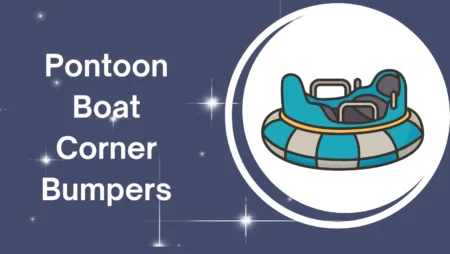
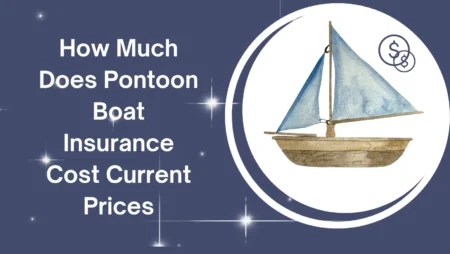
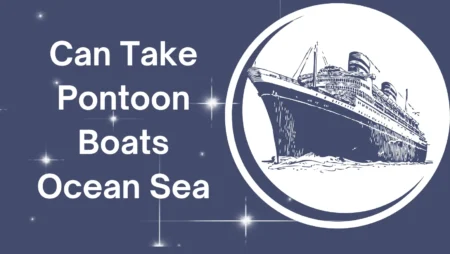
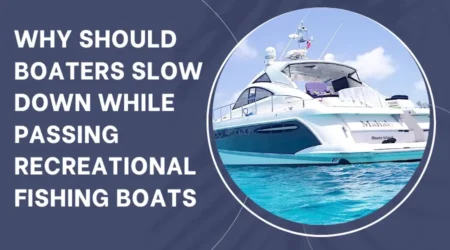

![What Is The Best Way To Avoid Overloading Your Boat?-[Guide 2023]]](https://theboatingbuds.com/wp-content/uploads/2022/03/Best-way-to-overload-boat.webp)
